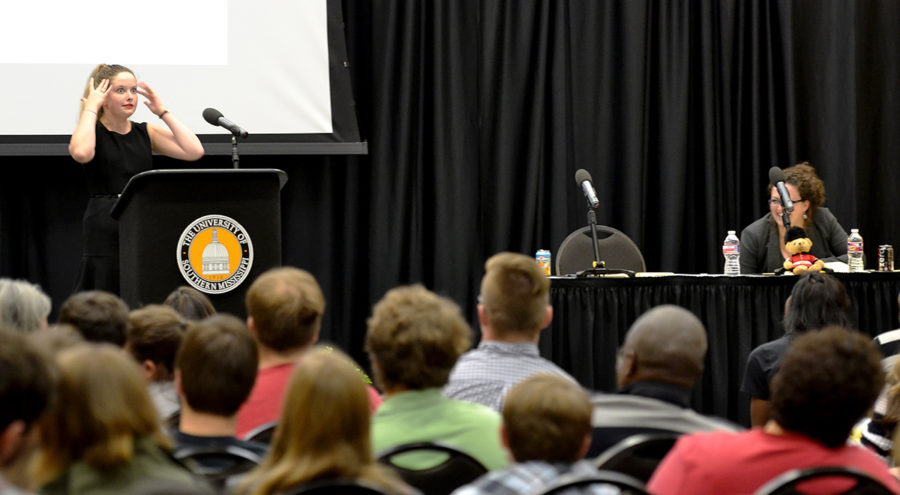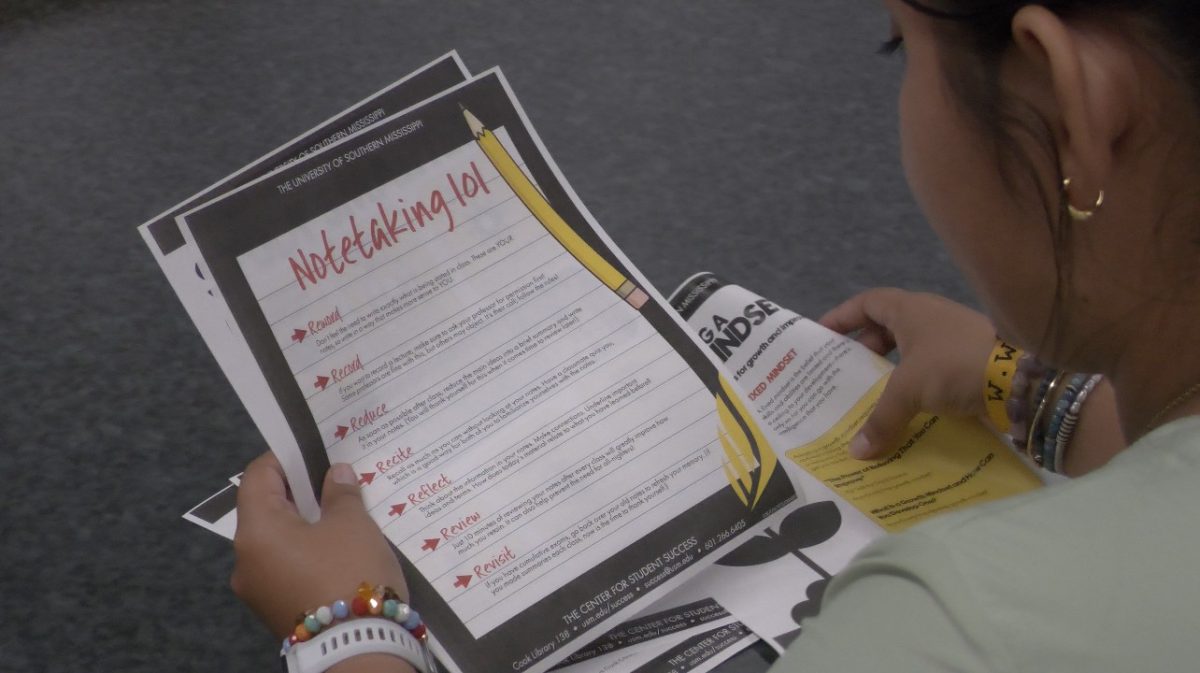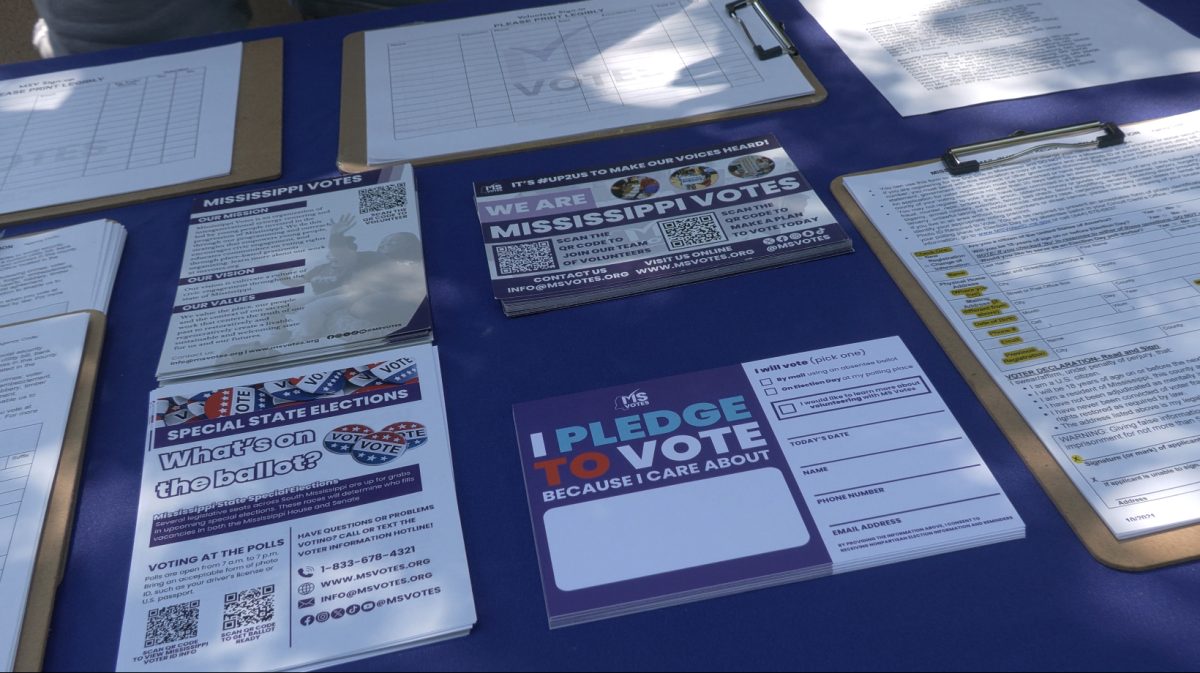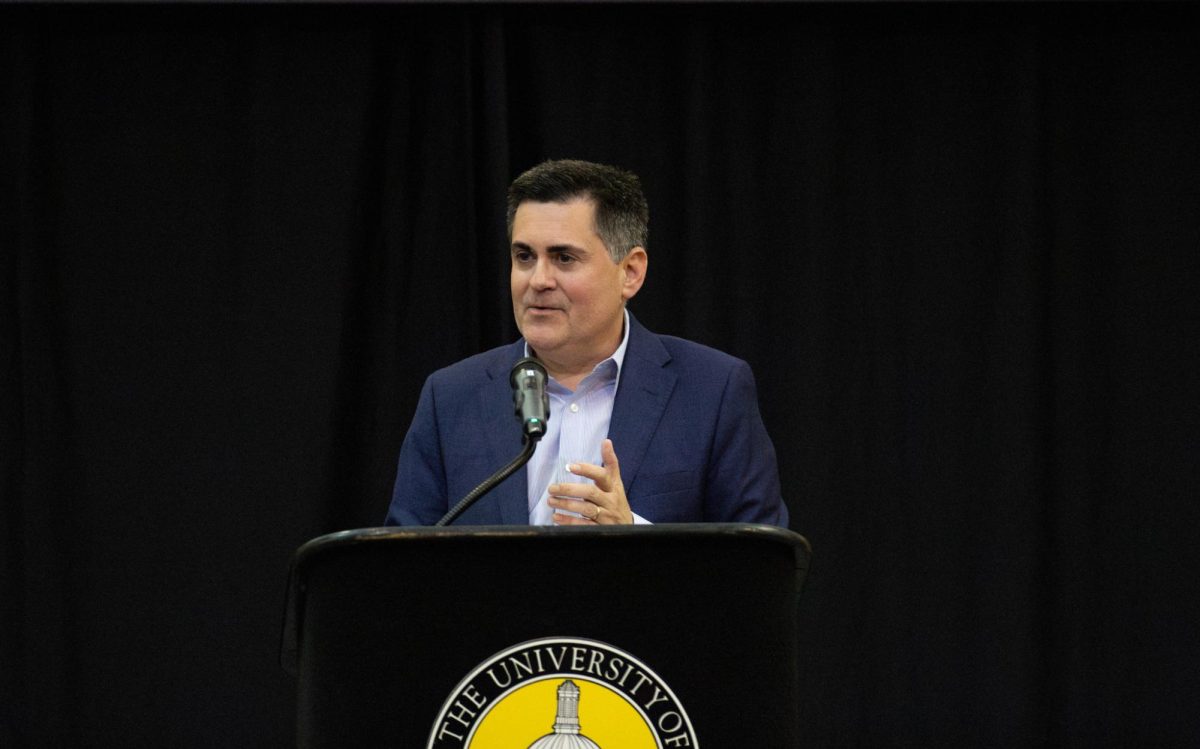The Southern Miss Forensics Society hosted the British National Debate Team Monday night, and the resulting debate was filled with laughs, passive-aggressive jabs and major points about the topic at hand: public protests.
The two teams debated the use of state force to quell illegal public protests. The right of Americans to protest is one guaranteed by the Constitution, but there are still laws to those protests, such as requiring permits and avoiding the destruction of property. The Southern Miss team argued that state force, such as police or even military action if called for, should be used to subdue protestors. The British team argued that Americans should have the right to protest, and state action should only be used when people’s lives are put in danger by the protests.
The Southern Miss team comprised of Josh Von Herrmann, president of the Southern Miss Forensics Society, and Meredith McPhail, vice president. The British team was made up of Kate Brooks, a doctoral student in international relations at the University of Oxford, and Alice Huntley, a recent English literature graduate from the University of Bristol.
The Southern Miss team argued that state force is perfectly justified in countering illegal public protests when they interfere with society.
“Even nonviolent protests can halt or hinder everyday life for citizens,” McPhail said. “For example, Occupy protests disrupted sanitation practices. Also Ferguson protesters attempted to shut down a major highway during rush hour.”
However, the British team argued that force should only be used when people’s lives are in danger because it is the duty of the police to protect citizens.
Brooks also said in her argument that the government should not become involved in protests because they are biased about why they should be stopped.
“The government doesn’t care about the Westboro Baptist Church,” Brooks said. “The government cares only about those who are a threat to their norm, to their power,” citing events such as the 1960s civil rights protests in Birmingham, Alabama, and the gay rights protests of Harvey Milk in San Francisco, California.
In his argument, Von Herrmann argued the police should be proactive instead of reactive, and said they should take action long before lives and individual rights are in danger. He argued the rules are put in place for a reason to make sure protesters do not just try to take what they want using force.
A large takeaway from the event was the difference between the two teams’ debate styles. While the Southern Miss team had more experience with fact-based debates and having to cite research in arguments, the British team employed extra emotion in the argument.
“This is an emotional topic, so it’s hard not to bring emotion to it,” Huntley said. “To be honest, you usually don’t base a decision on pure logic. Also, it comes from the style of how our Parliament debates. It’s very loud, passionate, and rather chaotic, so I think we learn to debate like they do.”
When McPhail said in her opening argument that an example of an illegal protest is the Boston Tea Party, Brooks began her argument with a rant about how southerners are not aware of how to properly prepare tea, saying it was like liquid diabetes. Brooks and Huntley also brought issues of race and social class into the argument often and said it is the minorities of society who need the right to protest because their voices are not as easily heard.
Audience members were able to use text messaging and Twitter to vote for the winner. The audience decided there should be a limit on the stat force used because the British team won at the end of the night with 63 percent of the votes.
































